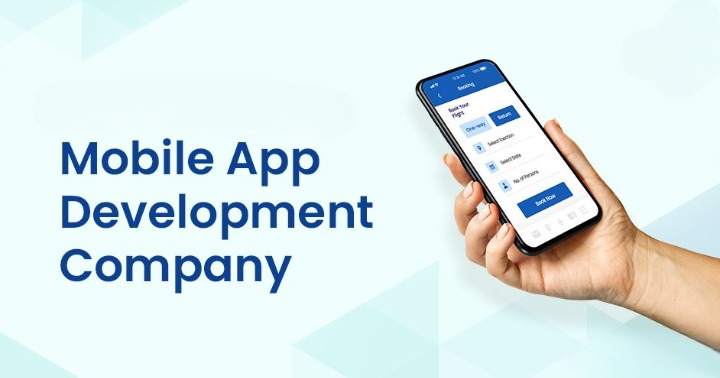How to Select a Mobile App Development Company: A Strategic Approach for Success

1. Introduction
In today’s digital era, mobile applications are integral to everyday life, serving millions of users across industries. Whether for entertainment, banking, shopping, or healthcare, businesses need high-quality mobile apps to engage customers effectively. This has led to a surge in demand for mobile app development company that can design, develop, and deploy powerful mobile solutions.
This article will explore everything you need to know about mobile app development companies, from the types of apps they create to how you can select the right one for your business.
2. Types of Mobile Apps
Mobile apps generally fall into three categories:
Native Apps: Built specifically for one platform, such as iOS or Android, and are known for their speed and performance.
Hybrid Apps: Created using a single codebase for multiple platforms, offering a balance between native performance and ease of development.
Web Apps: Designed for browsers and accessed through the web, they are often less expensive to build but may lack the performance of native apps.
3. Benefits of Hiring a Mobile App Development Company
Hiring a professional mobile app development company offers several key benefits:
Expertise and Experience: Specialized companies bring extensive experience and technical knowledge, ensuring a robust and user-friendly app.
Cost Efficiency: Outsourcing app development can be more affordable than maintaining an in-house team.
Speed to Market: With streamlined processes and resources, app development companies often bring apps to market faster.
4. How to Choose the Right Mobile App Development Company
Choosing the right mobile app development partner is crucial to the success of your project. Key factors include:
Portfolio and Case Studies: Review the company’s past work to understand their capabilities.
Expertise in Relevant Platforms: Ensure the company has expertise in the platforms your app will target.
Client Testimonials and Reviews: Read reviews and testimonials from past clients to gauge satisfaction and reliability.
5. Key Features to Look for in a Mobile App Development Company
A few essential features to consider when selecting a development company are:
Technical Proficiency: The company should have expertise in modern technologies and frameworks.
Communication and Collaboration: Clear communication and collaborative approaches lead to better project outcomes.
Support and Maintenance: Post-launch support is crucial for ongoing app performance and updates.
6. Understanding the Development Process
The development process typically consists of four phases:
Initial Consultation: This stage involves understanding the client’s vision and app requirements.
Wireframing and Design: Designers create wireframes and prototypes to visualize the app’s interface.
Development and Testing: Developers build the app, followed by rigorous testing to ensure functionality and security.
Deployment and Support: Once the app is deployed, the company provides ongoing support and maintenance.
7. The Cost of Mobile App Development
Mobile app development costs vary depending on several factors:
Factors Influencing Cost: Complexity, features, platform, and location of the development team all affect the cost.
Average Costs by Region: Costs can range from $50,000 in North America to $15,000 in countries like India.
Importance of Value Over Cost: While cost is a factor, the value the app delivers to your business should be the primary consideration.
8. Importance of User-Centered Design
User-centered design focuses on delivering a seamless user experience (UX). It involves understanding users’ needs and behaviors to design intuitive and effective interfaces.
What Is User-Centered Design? This approach prioritizes user satisfaction, leading to higher retention rates.
Enhancing User Experience (UX): A well-designed UX ensures ease of use, engagement, and satisfaction.
9. Technology Stack for Mobile App Development
The technology stack used for mobile app development can determine the app’s performance and scalability:
Frontend Technologies: Swift for iOS, Kotlin for Android, and React Native for cross-platform apps.
Backend Technologies: Node.js, Python, and Ruby on Rails are common choices.
Database and Cloud Integration: Technologies like Firebase, AWS, and MongoDB ensure robust data management and cloud connectivity.
10. Future Trends in Mobile App Development
The mobile app development landscape is evolving rapidly, with several trends gaining traction:
AI and Machine Learning Integration: Apps are becoming smarter and more personalized with AI-driven features.
5G and Its Impact: The rollout of 5G will enable faster, more responsive mobile experiences.
AR/VR and Immersive Experiences: Augmented and virtual reality are creating new possibilities for interactive mobile apps.
11. Case Studies of Successful Mobile App Development Companies
Successful companies have revolutionized industries through their app development services:
Company A: This company transformed the fitness industry by creating a user-friendly app that tracks workouts and connects users with personal trainers.
Company B: By developing a healthcare app, this company improved patient care by facilitating remote consultations and prescriptions.
12. Frequently Asked Questions (FAQ)
What Is the Average Timeline for Mobile App Development? The development process usually takes 3-9 months, depending on the complexity.
How Do I Maintain My Mobile App After Development? Regular updates, security patches, and performance monitoring are essential for maintaining your app.
How Can I Monetize My Mobile App? Popular strategies include in-app purchases, subscriptions, and advertisements.
13. Expert Insights from Mobile App Development Leaders
Industry leaders emphasize the importance of staying up-to-date with the latest technologies and trends. In an interview with a prominent app developer, they discussed the challenges of scaling apps and the importance of user feedback in the development process.
14. The Future of Mobile App Development
Mobile app development is set to become more automated with the rise of AI and no-code platforms. Developers will need to adapt to rapid changes in technology, focusing on creating more intelligent, adaptive apps.
15. Conclusion
In conclusion, mobile app development company play a vital role in helping businesses build engaging, high-quality apps. When selecting a partner, focus on their expertise, communication, and long-term support capabilities. As technology continues to evolve, businesses must stay ahead by investing in innovative and user-centered mobile applications.



